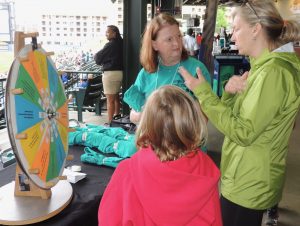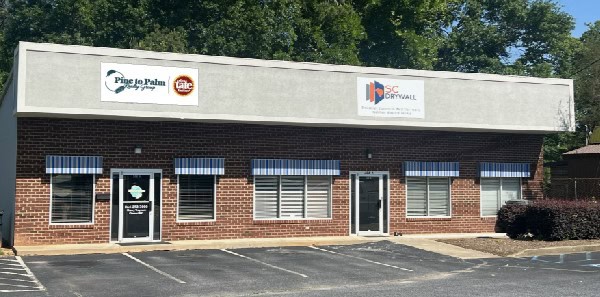Last Updated on March 27, 2018
Anyone who has ever built a home knows that the first step is laying a solid foundation to support the rest of the structure.
For someone experiencing homelessness, the same principle applies. While housing is the solution, supports must be in place to help a household become secure and stable.
According to a point-in-time count conducted in January 2017, 574 people – nearly half of them women and children – were experiencing homelessness in Guilford County, N.C. The problem is widespread; more than 3,000 children in the public school system there have experienced homelessness or are at risk. Approximately 300 students at the University of North Carolina – Greensboro (as well as students at other area colleges) are “couch surfers” – constantly moving from place to place, with no permanent residence.
Brian Hahne is determined to change those numbers.
As executive director of Partners Ending Homelessness, Hahne oversees 40 community organizations involved with the homelessness continuum of care in Greensboro, High Point and surrounding communities.
His organization provides no direct services to the homeless population. Rather, it serves as the hub of a wheel that helps bring together the community-wide resources and stakeholders to provide solutions – and ultimately give people hope and dignity.
“There is no simple solution to homelessness. You can provide housing, but you must also link that with services – things to ‘do life’ with,” said Hahne, a former minister who joined Partners in last year. “We try to cement the relational glue.”
Those “do life” services might include anything from help with food, utilities and transportation, to job training, child care and mental health/substance abuse programs.
What’s harder to understand is that there’s no “one-size-fits-all” answer, as each client has different needs, abilities and challenges.
“The guy on the corner with the cardboard sign is not the primary face of homelessness,” Hahne said. “Homeless people come from all walks of life. Many hide in plain sight to maintain a sense of dignity.”
Some people experience episodic homelessness, related to fluctuations in seasonal work or domestic disagreements. Others find themselves situationally homeless from a job loss, medical crisis or other economic setback – one life event – with no safety net or support network to rely on.
Many simply need an alternative support system to help get back on their feet.

After two car accidents destroyed his car and landscaping equipment, Jayme Murphy found himself without a job and homeless, along with his wife and five children. Family members were living in their vehicle when they sought help from a local organization. In addition to helping them obtain safe shelter, the organization connected them with support services, which gave them time to get back on their feet.
Today, Murphy works full-time, his family lives in stable housing and his children thrive in school.
The group where Partners and its affiliated organizations largely focus their efforts is the chronically homeless, those who are in and out of shelters on a continuous basis and regularly consume community resources.
In 2013, Partners identified 143 people who were chronically homeless. Through connecting, supporting and advocating for its front line agencies, that number dropped to just 25 in 2017. Partners hopes to help keep that number low.
Partners helps apply for and administer $2 million in U.S. Housing and Urban Development (HUD) grants, along with $1 million in state and local dollars, and the organization monitors its affiliates for accountability. Partners gathers, manages and reports data and conducts performance improvement and training for partner organizations.
Additionally, it serves as an advocate to tell community stakeholders about each organization’s work, building support from local foundations, private individuals and businesses and the faith-based community. Allen Tate Realtors® is proud to support Partners through the company’s Tate Cares annual giving campaign.

“What we need people to understand is that there is no wrong door to access resources. Anyone who desires to take advantage of those resources can flourish,” Hahne said.
On June 2, Partners Ending Homelessness will host the 10th Annual Home Run for Homelessness fundraiser with the Greensboro Grasshoppers at First National Bank Field. A portion of advance group ticket sales will benefit Partners. To purchase tickets, visit www.pehgc.org/events.
To learn more about Partners and its affiliate organizations, contact Brian Hahne at brian@partnersendinghomelessness.org. If you live in Guilford County and are at risk of losing your housing, call the Housing Hotline at 336-691-9521 or dial 2-1-1 to access United Way resources.
“We’re trying to lead the charge to change homelessness from a destination to a process. The only difference between a household experiencing homeless and everyone else is a house to go home to at night,” Hahne said.



